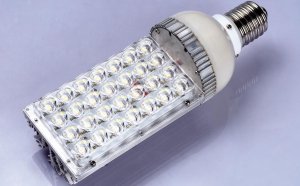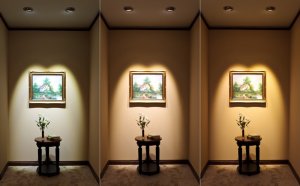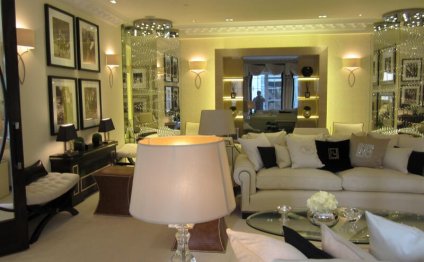
LED light Bulb Design
 Yesterday, a federal ban on production of 40- and 60-watt incandescent light bulbs moved into result, forcing consumers to change to more effective (if less great looking) bulbs, like LEDs and CFLs. Philips wants to make that switch as painless as you possibly can. Therefore these days, the lighting effects monster is releasing a cheap LED lamp that also happens to be since flat as a pancake. Could this be the bulb that eventually endears consumers to LEDs?
Yesterday, a federal ban on production of 40- and 60-watt incandescent light bulbs moved into result, forcing consumers to change to more effective (if less great looking) bulbs, like LEDs and CFLs. Philips wants to make that switch as painless as you possibly can. Therefore these days, the lighting effects monster is releasing a cheap LED lamp that also happens to be since flat as a pancake. Could this be the bulb that eventually endears consumers to LEDs?
Some back ground regarding the Light-emitting Diode lighting effects market: LED bulbs reduce power usage, in contrast to incandescents, and will endure around 20 years, where an incandescent might past less than one. But LEDs have struggled to gain grip with shoppers. One explanation is atmosphere: unlike incandescent bulbs, which emit a warm, flattering shine, LEDs tended to shine an unforgiving blue-tinted light. An extra issue is price: incandescents can cost a lower amount than a buck each, while LED light bulbs can cost around $20 a pop. A primary reason for the extra cost is a heavy (and expensive) metal heat sink that Philips (and competitors Cree and GE) consist of regarding the bulb’s base.
With SlimStyle, Philips has slashed the price around by 50 percent (Cree features previously granted a $10 light bulb too, however with 40 watts versus the SlimStyle's 60). The secret: the pancake form, that will help eradicate the importance of a heat sink.
Last year, Philips designers tinkered utilizing the remote phosphor technology that can convert blue light into a far more appealing indoor light, but to accomplish this, they needed seriously to make use of more LED diodes. The original bulb form caused it to be so that they had to cluster the diodes together closely. One issue: LEDs get hot quickly, and overheating can cut down on the bulb’s longevity. Designers, then, needed to include huge metal heat sink into the bulb's base to draw away heat up. That addition made the bulbs more costly.
 But by flattening the light bulb, Philips has actually eradicated the necessity for a heat sink. The flat form allowed Philips designers to arrange LED diodes in a horseshoe. So now, instead of the diodes emitting temperature in a super taut small group, they radiate temperature outward, across the surface associated with light bulb, in an arc.
But by flattening the light bulb, Philips has actually eradicated the necessity for a heat sink. The flat form allowed Philips designers to arrange LED diodes in a horseshoe. So now, instead of the diodes emitting temperature in a super taut small group, they radiate temperature outward, across the surface associated with light bulb, in an arc.
In terms of keeping the contour of a conventional incandescent bulb (albeit a 2-D variation): Todd Manegold, director of LED at Philips, claims that keeping some components of familiarity is paramount to courting wary consumers. Philips learned the hard way. In 2011, the business introduced the AmbientLED 12.5-watt A19 Light-emitting Diode lightbulb, which produced an odd yellow afterglow with regards to was switched off, baffling numerous consumers. With SlimStyle, the business hopes it has developed one thing both revolutionary and identifiable.
More experiments with LEDs will really to adhere to. "LEDs are now starting circumstances in which organizations can challenge everything you expect from a light bulb, " Manegold says. As one example, he cited the Philips Hue lighting system, which lets you stage an LED light program via an app. Searching ahead, Manegold says, the progression of Light-emitting Diode technology could enable manufacturers to worry less about mimicking incandescents. "My objective is once you put it behind a lamp shade you can’t tell it's an LED, " he claims. "But that doesn’t indicate it's become the Edison light bulb which was designed over a century ago."
RELATED VIDEO
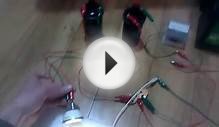
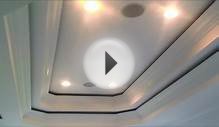
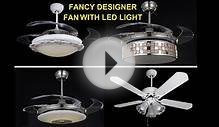
Share this Post
Related posts
Cheap LED Light bulbs
Remember in not-so-distant last when nearly all Light-emitting Diode light bulbs had been prohibitively priced? Well, right…
Read MoreDaylight LED Bulb
Rated 5.0 regarding 5.0 by Soundman5 GREAT! Great LED bulb, Great cost for 4Pk so No more CFL in my situation Looks like…
Read More
